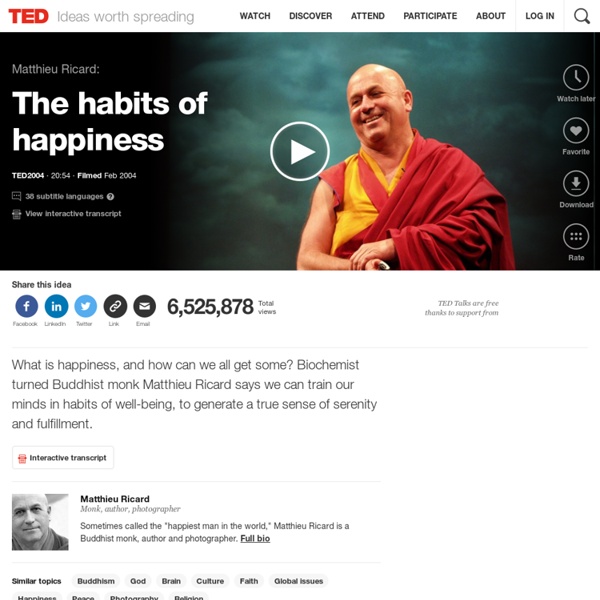Matthieu Ricard: The habits of happiness

8 tips to make your life more surprising — from a “Surprisologist”
A closeup of Tania Luna, with glow stick. Photo: James Duncan Davidson In today’s talk, Tania Luna shares her experience of immigrating to the United States from Ukraine as a little girl. Perfectly happy with her family’s outhouse and with chewing a single piece of Bazooka gum for a week, Luna found herself blown away by the wonders of her new country. Commit to the mindset and process of surprise. Luna believes we can all be surprisologists. Tania Luna leads a TED audience in a glowstick dance, during a talk given a year prior to the one posted today.
How to help your doctor give you better care
Upstreamists like me — and we can be doctors, nurses or other clinicians — know that asthma can start in the air around us. We know that ailments such as depression, anxiety and high blood pressure can arise from chronically stressful conditions at work and home. We see how policies that deny opportunity, fairness and justice can be reflected in patients’ faces as well as in their DNA. And, just as important, we understand how to translate this knowledge into action. The upstreamist considers it her professional duty not only to prescribe a chemical remedy but also to tackle sickness at its source. There aren’t nearly enough of these pioneers working in health care today, but our ranks are slowly growing. 1. Create a list of the potentially unhealthy issues in your environment. Some of these problems you might be able to fix yourself. 2. So, next time you visit your doctor, try asking: “Doctor, do you consider yourself an upstreamist?” 3. Not a gadgethead? 4. 5. 6.
Related:
Related:



